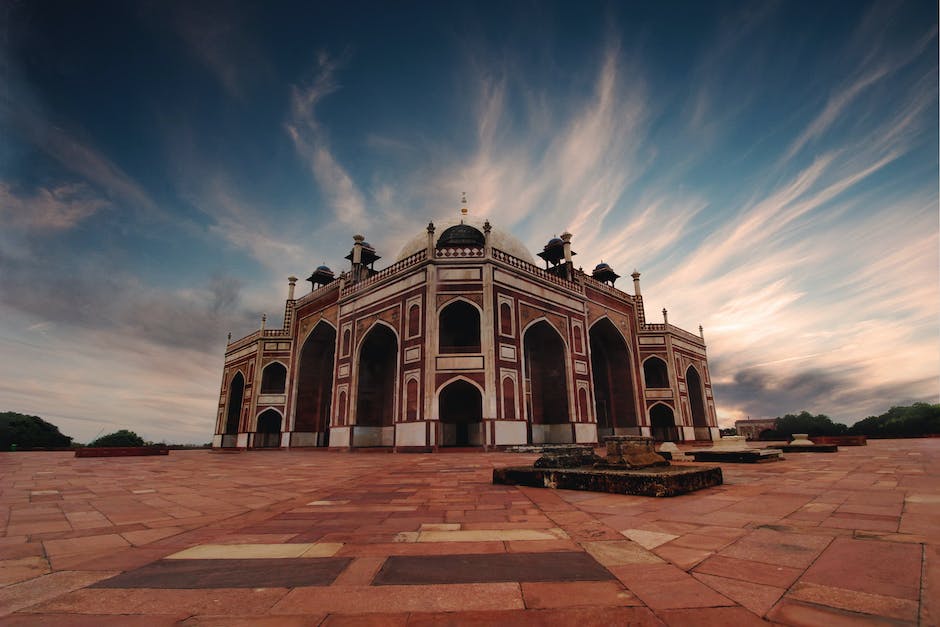Table of Contents
Preserving the Past, Guiding the Future: Arab Leaders in Heritage Conservation.
Introduction
“Arab Leaders in the Conservation of Heritage Sites: Preserving the Past, Guiding the Future” explores the significant role played by Arab leaders in the preservation and protection of heritage sites. This introduction provides an overview of the topic, highlighting the importance of heritage conservation, the rich cultural heritage of the Arab world, and the leadership efforts undertaken to safeguard these invaluable sites.
The Role of Arab Leaders in Preserving Heritage Sites

Arab Leaders in the Conservation of Heritage Sites: Preserving the Past, Guiding the Future
The preservation of heritage sites is a crucial task that requires the involvement of dedicated individuals and organizations. In the Arab world, leaders have played a significant role in this endeavor, recognizing the importance of preserving their rich cultural heritage for future generations. These leaders have taken various measures to ensure the conservation and protection of heritage sites, contributing to the overall development and promotion of their countries.
One of the key roles of Arab leaders in preserving heritage sites is the establishment of laws and regulations that safeguard these sites. These laws aim to prevent any damage or destruction to cultural and historical landmarks. By enacting such legislation, leaders send a clear message that the preservation of heritage is a priority. These laws also serve as a deterrent to potential violators, ensuring that heritage sites are respected and protected.
In addition to legislation, Arab leaders have also invested in the development of specialized institutions and organizations dedicated to the conservation of heritage sites. These institutions play a crucial role in conducting research, documentation, and restoration work. They also provide training and education programs to raise awareness about the importance of heritage preservation among the general public. By establishing these institutions, leaders demonstrate their commitment to preserving their cultural heritage and provide the necessary resources for its conservation.
Furthermore, Arab leaders have actively engaged in international collaborations and partnerships to enhance the preservation of heritage sites. They recognize that heritage preservation is a global responsibility and that sharing knowledge and expertise is essential for its success. Through these collaborations, leaders exchange best practices, learn from each other’s experiences, and work together to address common challenges. This international cooperation not only strengthens the conservation efforts within their own countries but also contributes to the global understanding and appreciation of Arab heritage.
Another significant role of Arab leaders in preserving heritage sites is the promotion of tourism. They understand that heritage sites are not only valuable from a cultural and historical perspective but also have the potential to boost their countries’ economies. By promoting these sites as tourist destinations, leaders create opportunities for sustainable development and job creation. They invest in infrastructure, hospitality services, and marketing campaigns to attract visitors from around the world. This approach not only generates revenue but also raises awareness about the importance of heritage preservation among tourists, fostering a sense of responsibility towards these sites.
Moreover, Arab leaders have recognized the importance of involving local communities in the preservation of heritage sites. They understand that these communities are the custodians of their cultural heritage and their active participation is crucial for its long-term conservation. Leaders have implemented community engagement programs that empower local residents to take ownership of their heritage and actively contribute to its preservation. By involving the community, leaders ensure that heritage sites are not only protected but also valued and appreciated by those who live closest to them.
In conclusion, Arab leaders have played a vital role in the preservation of heritage sites. Through the establishment of laws, the development of specialized institutions, international collaborations, tourism promotion, and community engagement, they have demonstrated their commitment to preserving their rich cultural heritage. By safeguarding these sites, Arab leaders not only preserve the past but also guide the future, ensuring that future generations can learn from and appreciate their cultural heritage.
Strategies Implemented by Arab Leaders to Conserve Heritage Sites
Strategies Implemented by Arab Leaders to Conserve Heritage Sites
Preserving the past is not only a matter of historical significance but also a way to guide the future. Arab leaders have recognized the importance of conserving heritage sites and have implemented various strategies to ensure their preservation. These strategies encompass a range of initiatives, from legislation and funding to community engagement and international cooperation.
One of the key strategies implemented by Arab leaders is the establishment of legislation and regulations to protect heritage sites. These laws aim to prevent the destruction or alteration of these sites and ensure their preservation for future generations. For example, in Egypt, the Supreme Council of Antiquities was established in 1859 to oversee the protection and conservation of archaeological sites and monuments. Similarly, in Jordan, the Department of Antiquities was created in 1923 to safeguard the country’s cultural heritage.
In addition to legislation, Arab leaders have also allocated significant funding for the conservation of heritage sites. Recognizing the financial resources required for such endeavors, governments have set aside budgets specifically for the preservation and restoration of these sites. For instance, the Saudi Commission for Tourism and National Heritage has allocated substantial funds for the restoration of historical sites, such as the UNESCO World Heritage site of Diriyah. This financial support enables the implementation of conservation projects and ensures the long-term preservation of these sites.
Furthermore, Arab leaders have recognized the importance of community engagement in the conservation of heritage sites. They have implemented strategies to involve local communities in the preservation efforts, recognizing that their active participation is crucial for the success of these initiatives. This involvement can take various forms, such as educational programs, awareness campaigns, and community-led conservation projects. By engaging the local population, Arab leaders are fostering a sense of ownership and pride in their cultural heritage, which in turn leads to increased support for its preservation.
International cooperation is another key strategy implemented by Arab leaders to conserve heritage sites. Recognizing that heritage preservation is a global responsibility, Arab countries have actively engaged in international partnerships and collaborations. These collaborations involve sharing knowledge, expertise, and resources to ensure the effective conservation of heritage sites. For example, the Arab Regional Centre for World Heritage, established in Bahrain in 2012, serves as a platform for cooperation among Arab countries in the field of heritage preservation.
Moreover, Arab leaders have also embraced technological advancements to aid in the conservation of heritage sites. They have utilized modern tools and techniques, such as remote sensing, 3D scanning, and digital documentation, to assess, monitor, and document these sites. These technologies enable a more accurate understanding of the sites’ condition and facilitate the planning and implementation of conservation projects. By embracing innovation, Arab leaders are ensuring that heritage sites are preserved using the most effective and efficient methods available.
In conclusion, Arab leaders have implemented a range of strategies to conserve heritage sites, recognizing their historical and cultural significance. These strategies encompass legislation and regulations, funding, community engagement, international cooperation, and the use of technology. By adopting these approaches, Arab leaders are not only preserving the past but also guiding the future, ensuring that future generations can appreciate and learn from these invaluable cultural treasures.
Challenges Faced by Arab Leaders in Heritage Site Conservation
Challenges Faced by Arab Leaders in Heritage Site Conservation
Preserving and protecting heritage sites is a crucial task for Arab leaders, as these sites hold immense historical, cultural, and economic value. However, they face numerous challenges in their efforts to conserve these sites for future generations. This article will explore some of the key challenges faced by Arab leaders in heritage site conservation.
One of the primary challenges is the lack of financial resources. Conservation efforts require significant funding for research, restoration, maintenance, and public awareness campaigns. Unfortunately, many Arab countries face economic constraints, with limited budgets allocated to heritage site conservation. This lack of financial resources hampers the ability of Arab leaders to implement comprehensive conservation plans and carry out necessary restoration work.
Another challenge is the rapid urbanization and development taking place in many Arab countries. As cities expand and populations grow, there is often pressure to utilize land for new construction projects. This can lead to encroachment on heritage sites, putting them at risk of destruction or irreversible damage. Arab leaders must navigate the delicate balance between development and preservation, ensuring that heritage sites are not sacrificed in the name of progress.
Political instability and conflict pose significant challenges to heritage site conservation in the Arab world. In regions affected by war or political unrest, heritage sites are often targeted for destruction by armed groups or suffer collateral damage. The loss of these sites not only erases a tangible link to the past but also undermines the cultural identity and heritage of the affected communities. Arab leaders must work tirelessly to protect heritage sites in conflict zones and rebuild those that have been damaged or destroyed.
Inadequate legislation and enforcement also hinder heritage site conservation efforts. Many Arab countries lack comprehensive laws and regulations specifically designed to protect heritage sites. Even when such laws exist, enforcement can be weak or inconsistent. This creates a climate of impunity, where individuals and organizations can engage in illegal activities such as looting, vandalism, or unauthorized construction near heritage sites. Arab leaders must prioritize the development and implementation of robust legal frameworks to safeguard these sites effectively.
Climate change and natural disasters pose additional challenges to heritage site conservation. Rising sea levels, extreme weather events, and changing environmental conditions can lead to erosion, flooding, or structural damage to heritage sites. Arab leaders must take proactive measures to mitigate the impact of climate change on these sites, including implementing adaptation strategies, conducting risk assessments, and investing in infrastructure improvements.
Finally, a lack of public awareness and appreciation for heritage sites is a significant challenge. Many people, both locals and tourists, may not fully understand the historical and cultural significance of these sites. This can lead to a lack of support for conservation efforts or even intentional damage caused by ignorance or indifference. Arab leaders must prioritize educational initiatives and public outreach programs to raise awareness about the importance of heritage site conservation and foster a sense of ownership and pride among the population.
In conclusion, Arab leaders face numerous challenges in their efforts to conserve heritage sites. These challenges include limited financial resources, rapid urbanization, political instability, inadequate legislation, climate change, and a lack of public awareness. Overcoming these challenges requires a multi-faceted approach that involves securing funding, balancing development and preservation, addressing political instability, strengthening legislation and enforcement, adapting to climate change, and promoting public awareness and appreciation. By addressing these challenges head-on, Arab leaders can ensure the preservation of their rich cultural heritage for future generations and guide the future by learning from the past.
Impact of Arab Leaders’ Efforts on the Future of Heritage Sites
The efforts of Arab leaders in the conservation of heritage sites have had a significant impact on the future of these invaluable cultural treasures. By recognizing the importance of preserving the past, these leaders are not only safeguarding their countries’ rich history but also guiding the future generations towards a deeper understanding and appreciation of their cultural heritage.
One of the key impacts of Arab leaders’ efforts is the preservation of historical sites for future generations. By investing in the restoration and maintenance of these sites, they ensure that the stories and traditions embedded within them are not lost to time. This preservation allows future generations to connect with their roots and understand the historical context in which their societies have evolved.
Moreover, the conservation efforts of Arab leaders have also contributed to the economic development of their countries. Heritage sites often attract tourists from around the world, who are eager to explore the rich history and cultural diversity of the Arab world. By preserving and promoting these sites, Arab leaders have created opportunities for sustainable tourism, which in turn generates revenue and employment opportunities for local communities.
In addition to economic benefits, the conservation of heritage sites also fosters a sense of national pride and identity. These sites are a testament to the achievements and contributions of past civilizations, and by preserving them, Arab leaders are sending a powerful message to their citizens – that their cultural heritage is valuable and worth protecting. This sense of pride and identity strengthens social cohesion and promotes a shared sense of belonging among the people.
Furthermore, the efforts of Arab leaders in the conservation of heritage sites have also had a positive impact on international relations. By showcasing their commitment to preserving cultural heritage, Arab countries have gained recognition and respect on the global stage. This recognition not only enhances their diplomatic standing but also fosters cultural exchange and cooperation with other nations. It opens doors for collaborations in the fields of archaeology, research, and education, allowing for the sharing of knowledge and expertise in heritage preservation.
However, challenges still remain in the conservation of heritage sites. Rapid urbanization, climate change, and political instability pose significant threats to these sites. Arab leaders must continue to invest in research, technology, and capacity-building to address these challenges effectively. Collaborative efforts with international organizations and experts can also provide valuable support in overcoming these obstacles.
In conclusion, the impact of Arab leaders’ efforts in the conservation of heritage sites is far-reaching. By preserving the past, they are guiding the future of their countries and shaping the cultural landscape for generations to come. The preservation of these sites not only safeguards their historical significance but also contributes to economic development, fosters national pride, and strengthens international relations. However, ongoing challenges require continued investment and collaboration to ensure the long-term preservation of these invaluable cultural treasures. Arab leaders must remain committed to this cause, recognizing that the conservation of heritage sites is not only a responsibility but also an opportunity to shape a brighter future.
Q&A
1. What is “Arab Leaders in the Conservation of Heritage Sites: Preserving the Past, Guiding the Future”?
“Arab Leaders in the Conservation of Heritage Sites: Preserving the Past, Guiding the Future” is a program or initiative focused on the preservation and conservation of heritage sites in the Arab region.
2. Who are the Arab leaders involved in this initiative?
The specific Arab leaders involved in this initiative may vary, but it generally refers to influential individuals or organizations in the Arab region who are actively engaged in the conservation of heritage sites.
3. What is the goal of this initiative?
The goal of “Arab Leaders in the Conservation of Heritage Sites: Preserving the Past, Guiding the Future” is to protect and preserve heritage sites in the Arab region, ensuring their cultural and historical significance is safeguarded for future generations.
4. How does this initiative contribute to the future?
This initiative contributes to the future by ensuring that heritage sites are conserved and protected, allowing future generations to learn from and appreciate their cultural and historical value. It helps to maintain a connection to the past and promotes cultural understanding and appreciation.
Conclusion
In conclusion, Arab leaders have played a significant role in the conservation of heritage sites, aiming to preserve the past and guide the future. Their efforts have focused on safeguarding historical and cultural landmarks, promoting sustainable tourism, and raising awareness about the importance of preserving heritage. Through various initiatives, collaborations, and investments, Arab leaders have demonstrated their commitment to preserving their rich cultural heritage for future generations. By doing so, they not only contribute to the preservation of their own history but also foster a sense of pride and identity among their people. The conservation of heritage sites in the Arab world serves as a testament to the region’s deep-rooted history and its determination to protect and showcase its cultural treasures.




